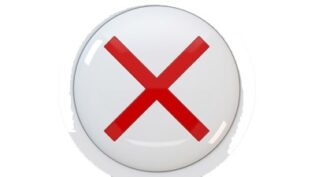Would it be better as the owner of a sole proprietorship to invest in a 401k versus a simple IRA?
By: Rick Gossett

Would it be better as the owner of a sole proprietorship to invest in a 401k versus a simple IRA?
Answer: There is not a single best approach to retirement planning for the owner sole proprietorship in every conceivable situation. Your business entity structure (corporation, limited liability company, self-employed, etc) and other considerations, including your expected income from the business, cash needs for other benefits such as health insurance, and your own lifestyle, income and retirement planning goals, will affect your choice of plan(s).
As a general rule, a 401(k) plan allows for much larger annual contributions overall and larger contributions at lower levels of income than a SIMPLE IRA plan which can make a 401(k) plan more appealing to both businesses and their employees. However, maintaining a 401(k) plan, particularly when a business has a large workforce, can be a greater administrative burden than a SIMPLE IRA plan. For a sole proprietorship with no employees, the choice is more often between a SEP-IRA and a Solo 401(k) plan rather than a SIMPLE IRA and Traditional 401(k) plan, but you may want to consider other retirement plan options available to small business owners, like one of the plans discussed in greater detail below.
Generally speaking, small business owners and their employees have a variety of retirement plan options. There are several different types of IRAs: Traditional IRA, Roth IRA, Education IRA (EDIRA), now called Education Savings Accounts, SEP-IRA, SARSEP-IRA, and SIMPLE-IRA. Traditional and Roth IRAs typically have the lowest contribution maximums ($5,000 for those younger than 50 and $6,000 for those age 50 and older in 2011 and 2012), so when considering tax deductible IRAs, business owners usually evaluate SEP, SARSEP and SIMPLE IRAs before settling on Traditional or Roth IRAs. Retirement plan eligibility and contribution limits differ depending on the type of plan, but in order to make tax deductible contributions you typically must have earned income or compensation from a trade or business. Earned income generally consists of wages or salary from a job or self-employment income generated from performing services in your own business. Provided you have earned income and meet all other IRS requirements, you can generally make tax deductible contributions to a retirement plan.
Retirement plans offer business owners a way to legally channel funds from their businesses, untaxed, into retirement savings programs for themselves and their employees. Generally, traditional pension plans, or defined benefit and money purchase plans, which are often difficult to establish and maintain and have mandatory funding requirements, are not favored by small business owners. More often 401(k)’s, SEP plans (Simplified Employee Pension), SIMPLE plans (Saving Incentive Match Plan for Employees), and Keogh plans, some of which currently allow contributions up to $49,000 ($195,000 for certain Keogh plans) in 2011 and up to $50,000 ($200,000 for certain Keogh plans) in 2012, and Traditional IRAs are favored by self-employed small business owners; however, new vehicles such as Solo 401(k)’s have been gaining popularity.
Your business entity structure (corporation, limited liability company, self-employed, etc) and other considerations, including your expected income from the business, cash needs for other benefits such as health insurance, and your own lifestyle, income and retirement planning goals, will affect your choice of plan(s). Your first step should be to sort out your options and familiarize yourself with each type of plan and its respective pros and cons, including contribution limits, set-up, administrative costs, and investment/distribution options. You can locate numerous discussions on retirement plans for self-employed small business owners, retirement planning and tools with an Internet search.
If you need a local tax advisor to help evaluate your business retirement plan options, we have had good feedback on Padgett Business Services, which has franchisees around the country. For a referral to a local office, call (800) 723-4388.
Published: October 21, 2013
2196 Views
2196 Views












